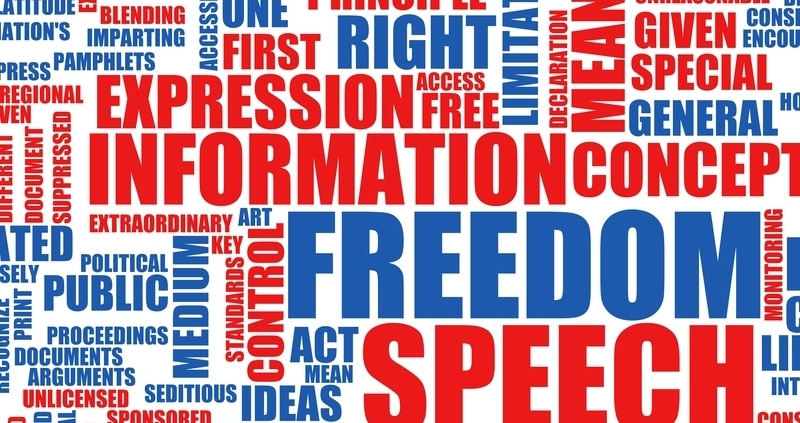LET FREEDOM (OF SPEECH) RING!
As we approach Independence Day 2019, it’s nice to find a story that involves both freedom and intellectual property. In a unanimous decision on Monday, June 24th, the Supreme Court ruled that the USPTO cannot reject trademarks that it deems immoral or scandalous. This follows a similar decision from 2017 where the Court upheld the right of the Washington Redskins to register their name despite the provisions of the disparagement clause of the Lanham Act which authorized the PTO to refuse registration to, or even cancel a trademark if it disparages a substantial percentage of a distinct group of people, be it a racial, ethnic, religious or political group.
This case involved clothing designer Erik Brunetti who sought to register FUCT which he claimed was an acronym for Friends U Can’t Trust. Brunetti’s business, which includes street wear clothing with FUCT prominently displayed, was started in 1990. He sought to register the mark so that he could pursue action against counterfeiters who were costing him money. Despite several attempts over the years, Brunetti’s efforts to register his mark were rebuffed by the Trademark Office based on the provisions of the Lanham Act that bars trademark protection for immoral, shocking, offensive and scandalous words.
During oral arguments in April, the justices were very careful to avoid saying FUCT out loud, with Justice Elena Kagan, who wrote the majority opinion, commenting that “[t]he First Amendment does not allow the government to penalize views just because many people, whether rightly or wrongly, see them as offensive.” The justices unanimously held that the provisions of the Lanham Act banning “immoral” trademarks was overly broad in that it allowed the government to deny trademark registrations to messages that it did not approve.
However, on the “scandalous” provision, the justices were divided. The majority, led by Justice Kagan, found that the “scandalous” provision of the Lanham Act also violated the First Amendment guarantee to freedom of speech by disfavoring certain ideas. In so doing, Kagan pointed to a couple of instances where messages similar to those that had been approved were denied based on the ideas conveyed: “Say No To Drugs” granted protection, while “You Can’t Spell Healthcare Without THC” denied; “Praise The Lord” and “Jesus Died For You” granted, while “Bong Hits for Jesus” denied. The dissenters — Justices Roberts, Breyer and Sotomayor — would have upheld the statute by interpreting it narrowly to ban profane, vulgar and obscene messages from being registered as trademarks.
It is expected that the decision will result in a flood of new trademark applications for profane, racist and offensive messages. Even though the decision opens up the floodgates for a whole category of words that had previously been unregisterable, such words still cannot be registered in connection with goods or services that are associated with the common meaning of the mark. Such marks are considered to be generic and not registerable.
Have you been denied registration of your mark because it was considered to be “immoral” or “scandalous”? Or have you not pursued registration of a brand name because you feared that it would be denied in these grounds? If so, the time is now to file your application for registration. Contact us to see how we can help.



